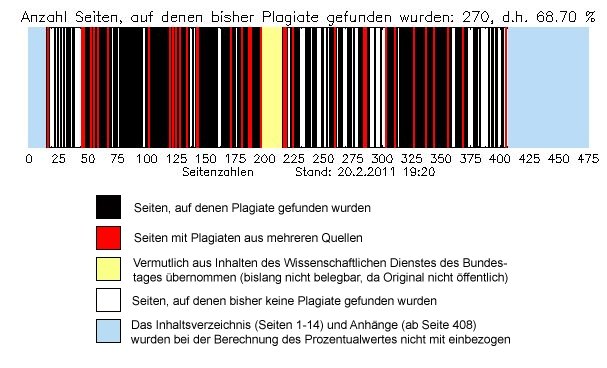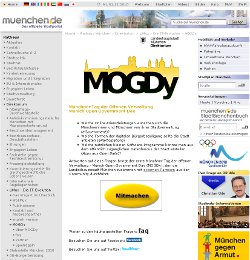Archive for the ‘Uncategorized’ Category
 |
3. March 2011 – 11:02 by John Heaven (TuTech Innovation GmbH)
|

Photo by Techie Kev on Flickr.com
As reported in the Guardian, Walsall City Council is conducting a 24 hour experiment to publicise what it does. Starting at 6.00 UK time today, four Twitter streams will be pumping out updates from nuisance neighbour reports to pest control.
The Twitter accounts @walsall24_1 to @walsall24_6 have been reserved, although at the time of writing only two seem to be tweeting — presumably the rest have been reserved to prevent spoofers setting up bogus accounts (which, to my juvenile mind, seems a bit of a shame).
The experiment follows a similar campaign by Manchester Police, who tweeted over a 24 hour period recently.
For more information, see the Walsall City Council website: https://www.walsall.gov.uk/walsall24.htm.
PS: There’s a free candy floss and a goldfish if you understood the pun in the title.
Posted in Uncategorized | No Comments »
 |
21. February 2011 – 17:00 by John Heaven (TuTech Innovation GmbH)
|

A Guttenberg Keyboard, photo from eBay listing
Germany’s Defence Minister, Karl-Theodor zu Guttenberg, has temporarily forgone his PhD following accusations that his thesis is shot through with plagiarism, including unacknowledge quotations from newspapers and other politicians. Some jokers have been selling pared-down keyboards stripped of all but the CTRL, A, C and V keys, necessary to perform the ‘select all’, ‘copy’and ‘paste’ operations; essential weapons in any plagiarist’s arsenal.
“Guttenberg Gate” or the “Googleberg Affair” has prompted a crowdsourced proofreading of his thesis by anonymous German citizens. They aren’t backward in coming forward when reporting instances of plagiarism that they have found: so far, according to the graphic on the front page, there is at least one unacknowledged quote on 68.7% of the pages.
Until now, Guttenberg was Germany’s most popular politician whom many saw as capable, charming and possessing integrity. This affair has shown that it is difficult to be one person in public and another in private because the internet allows thousands of people – whatever their motives – to organise themselves and air your dirty washing in public. Because the participants in the wiki are anonymous, there’s no telling whether they are political adversaries or simply passionate academics interested in protecting the integrity of their discipline; but it is likely to be some mixture of both.

The graphic from the Guttenplag wiki; 69% of pages contain a plagiarism
As in the UK MPs’ expenses affair, we see openness in public life resulting in citizens being disappointed when they think their representatives cannot live up to their expectations. In this case, Guttenberg stands accused of lying on oath and is liable to prosecution if it turns out that he lied about the originality of his thesis. He is also alleged to have abused his office as an MP by making enquiries through the Bundestag (German Parliament) and copying the answers into his thesis without acknowledging the source. So you may argue that he deserves to be deprived of his office.
But everyone has skeletons in their cupboard and it is inevitable that, as politics becomes more open, we will have to accept that politicians aren’t perfect and consider what we can realistically expect of them, and what we can forgive them for. Guttenberg aside, I think it would do us all good to get real about what we expect of politicians on a personal level; if openness and transparency force us to have that discussion, then I’m in.
Aside from the issues of our expectations of politicians and the line between their public and private lives, an interesting aspect of this is the usefulness of the results. An important criterion for sustainable eParticipation is often said to be the quality of the results that it produces, meaning that there needs to be some way of aggregating citizens’ input. The GuttenPlag wiki presents the results in quite an easy-to-digest fashion that I imagine would be quite useful for the ultimate addressees, the commission at the University of Bayreuth that is assessing whether the thesis is still valid. Quite simply, there is a list of page numbers where you can click to see the alleged plagiarisms on each page with detailed information justifying the allegation. The wiki moderators will only accept plagiarism accusations that are corroborated by two people, providing a simple way of aggregating the results in a useful format. In this case, the task to be completed is very clearly defined and the format is simple but effective.
Finally, the graphic that I noted above is a good example of a point that is often made about open data; namely, that you have to be careful about being misled. At first sight, it may seem like 68.70% of the content in the thesis is a plagiarism because that’s the number of pages on which an alleged plagiarism occurs. However, on closer inspection you realise that a single plagiarism on one page means that that page is then deemed a plagiarism whether the whole page is a copy-paste job or just one sentence or phrase. Ridiculously, if Guttenberg had printed his thesis on smaller paper, he presumably could have come off better: smaller, and hence more, pages could mean that each plagiarism would make up a smaller percentage of the total (assuming it was contained on one page).
Posted in Uncategorized | No Comments »
 |
17. December 2010 – 10:02 by John Heaven (TuTech Innovation GmbH)
|
The Localism Bill passed the second reading stage in the UK House of Commons this week, and I had a look at the Department for Local Government and Communities’ fifteen-page guide to see what implications there could be for eParticipation.One aspect of the bill is promotion of open data whilst decentralising control over performance indicators. How does this impact on the move towards standards in open data?
Apart from the technical aspect of common standards, standards in a broader sense – i.e. ensuring that different public organisations collect the same information across the board – may not mix with localism too well. Abolishing the Comprehensive Area Assessment regime, including Local Area Agreement (an agreement between local strategic partnerships and central government, whereby they would select from a list of measurements against which to judge the performance of public services in an area) the coalition government hopes that performance information will be collected according to what the local population wants, and avoid top-down pressure that can be detrimental to performance by distorting incentives.
Ignoring the second point for now (namely, whether it makes a difference where pressure to collect data comes from), it is difficult to see how comparable data for a whole country can be collected if we adopt this principle that data should be collected according to local needs and co-ordination on a national level should be shunned. If you intend to move from one city to another and want to compare hospital waiting times, you may have trouble if one of the cities measures number of patients seen within six weeks and the other measures different waiting times for specific illnesses.
Imagine that on a European level, and you can see that open data-led transparency for citizens or businesses shopping around for the country that suits their preferences becomes difficult. Cities have long benchmarked themselves against other cities — for example, in the UK Core Cities facilitates this — and this requires standards to ensure they aren’t comparing apples with pairs.
I think this all comes down to an issue that is central to open data: what are we willing to sacrifice for it? If we want comparable open data, we have to sacrifice some local control over what is collected; if we want datasets that aren’t currently available, we have to pay to collect them or have them entered into a computer and continue collecting them regularly, or forgo some of the income that was generated by offering them commercially. As these issues start to get teased out, we see the debate moving beyond what I will term “passive open data”, whereby public authorities operate transparently in by opening up data they already have, to thinking about how much money should be invested, or local control sacrificed, in order create new tools to power citizen participation, or actively opening up data.
Posted in Uncategorized | 1 Comment »
 |
1. December 2010 – 14:40 by John Heaven (TuTech Innovation GmbH)
|

Screenshot from MOGDy website
They say a week is a long time in politics, and in eParticipation a day is just as long: Munich Open Government Day (MOGDy) is lasting, er, several months.
Starting today, the City of Munich is asking citizens to answer three questions using its dedicated online platform:
- what online services should the local government provide?
- what eParticipation initiatives should the city engage in?
- what apps could make use of the data that the city will shortly release?
Any citizen can suggest ideas and rate other people’s ideas. The five people with the top ideas will get tickets to the Oktoberfest. At the MOGDy Camp on 21st and 22nd January 2011, the city will launch its open data programme in which it will be releasing data and encouraging developers to get stuck in and create useful apps out of them. The best apps will be awarded prizes and the City will present them online.
Posted in Uncategorized | No Comments »
 |
26. November 2010 – 14:05 by John Heaven (TuTech Innovation GmbH)
|

It *is* snowing outside my office
Like the snowflakes that are starting to cover a wintery Hamburg, the votes for this petition are coming in thick and fast. As I write, 131,458 people have put their names to a petition calling on European governments, members of the European Parliament and the President of the European Commission to “adopt effective regulations for the European Citizens’ initiative”.
Read the rest of this entry »
Posted in Uncategorized | No Comments »
 |
26. November 2010 – 13:38 by John Heaven (TuTech Innovation GmbH)
|
PublicDecisions, the US-based online academy for stakeholder engagement, is holding an online conference on online interactive games and mobile applications (or “apps”) that support public engagement. You can submit proposals for presentations until Wednesday 12th January 2011.
For further details, see their blog.
Thanks to Janice from PEP-NET member Involve for the tip-off!
Posted in Uncategorized | No Comments »
 |
23. November 2010 – 16:51 by John Heaven (TuTech Innovation GmbH)
|

Photo by gumtau on Flickr.com
I recently heard about Hamburg’s scheme for composting biodegradable rubbish that the waste management service collects from households, and selling the resulting compost.
I’m sure Hamburg isn’t the only city that does this, but isn’t it a great example of citizen participation? Citizens know what they are being asked for and why, and they can see clear results when they buy compost to put on their gardens.
Read the rest of this entry »
Posted in Uncategorized | 2 Comments »
 |
11. November 2010 – 18:51 by John Heaven (TuTech Innovation GmbH)
|
A Birmingham councillor has been arrested for allegedly inciting violence against a newspaper columnist. As reported on Davepress, the BBC and the Guardian, and also discussed on Jon Hickman’s blog, in response to Yasmin Alibhai Brown’s appearance on Radio 5 Live Councillor Gareth Compton wrote:
“Can someone please stone Yasmin Alibhai-Brown to death? I shan’t tell Amnesty if you don’t. It would be a blessing, really.”
Compton has since apologised and deleted the offending tweet.
As I commented on Jon Hickman’s blog, I think this shows the unpredictability of Twitter, and how the public’s reaction can abruptly swing from ignoring a flow of mildly offensive or banal chatter to multiplying thousandfold the one tweet that a politician wishes they never wrote. It’s not easy to identify that threshold, but politicians cross it at their peril.
Posted in Uncategorized | No Comments »
 |
4. November 2010 – 12:53 by Olga Lacigova - 21c
|
Brussels, November 2010 –The Flemish Government and a host of European local government partner organisations have launched an open online consultation to encourage local eGovernment practitioners across Europe to help identify practical solutions to combat working barriers to eGovernment at the local level such as bureaucratic red tape, cultural resistance and divergent privacy and data protection laws.
The objective of this effort is to produce a pan-European ‘Call to Action’ – known as The Citadel Statement – that will help local government deliver on the key objectives of the Malmo Ministerial Declaration by identifying the top things that national and EU decision makers can do by 2013 to better support local eGovernment. Initial research shows that despite numerous policy documents and ‘how to’ manuals on local eGovernment, nearly one year on the ‘Malmo Vision’ is still not being translated down to the on-the-ground, local level.
The online consultation will close on November 5. Join in the consultation now and help ‘Make Malmo Real’ at the local government level: https://egovstatement.wordpress.com
The Citadel Statement will be formally launched at the Belgian Presidency’s forthcoming ‘Lift Off Towards Open Government’ Conference on December 15-16. The Flemish Government invite practitioners from across Europe to the site of the old Ghent Citadel on December 14 – the perfect place to launch an ‘Ideal Cities Statement,’
Posted in Uncategorized | No Comments »
 |
3. November 2010 – 18:05 by openpolis
|

There is no official repository of all the available public data in Italy.
Nothing like data.gov or data.gov.uk. Nor it seems there will be something even resembling it in a distant way, at least in the next few years.
And no, that’s not because our Public Administration lacks qualified or motivated managers and employees, or because of a diffused cultural attitude of ignorance and suspicion towards the new technologies in an ageing country ruled by an ageing political class. Both statements are prejudicial and false. We do have many greatly motivated managers (many young ones) in our PA, that understand perfectly the competitive advantages and moral appropriateness of putting public data, in standard and exchangeable formats, back in the hands of their owners: us the citizens.
Maybe it’s just that the subject is not ranked so important, as to trigger an organizational effort at a national level, comparable to data.gov.
The way to go with public data here seems to be the Do It Yourself way.
That’s exactly how the Spaghetti Open Data initiative was born a few weeks ago.
A small community of about 50 Public Administration employees and bloggers started assmbling links to sources of public data and to open software tools that can operate on them.
In a couple of weeks, the web site has been set up and it has just been launched today (nov, 3rd 2010). It contains links to 34 sources and 9 tools. It is open, it has been developed in an open standard, ready to be integrated into the italian CKAN.
It’s just a small seed, but it has the potential to grow fastly into a big tree of interconnected persons and projects. Maybe it will then be able to win a bit of attention and change the inertia of the central government with respect to this subject.
Posted in open data, Uncategorized | No Comments »













